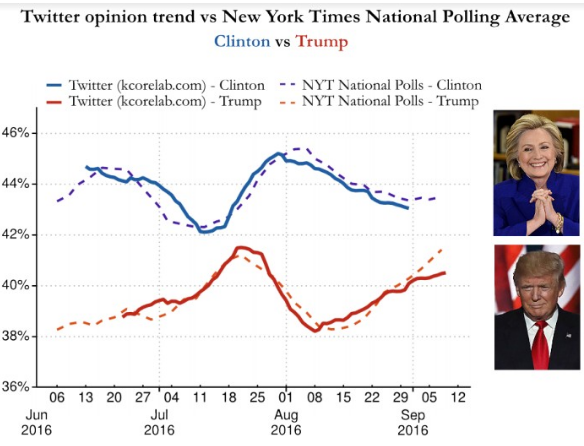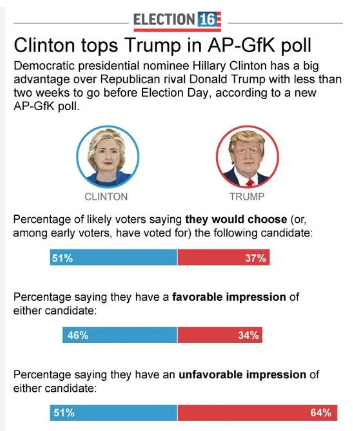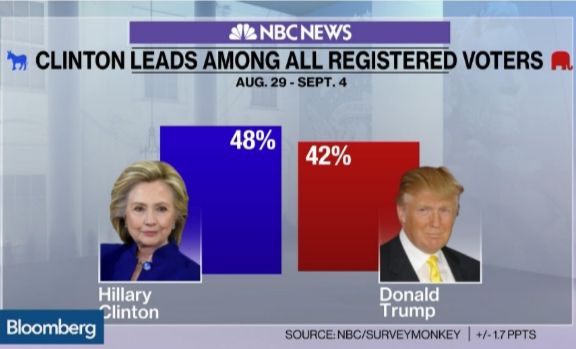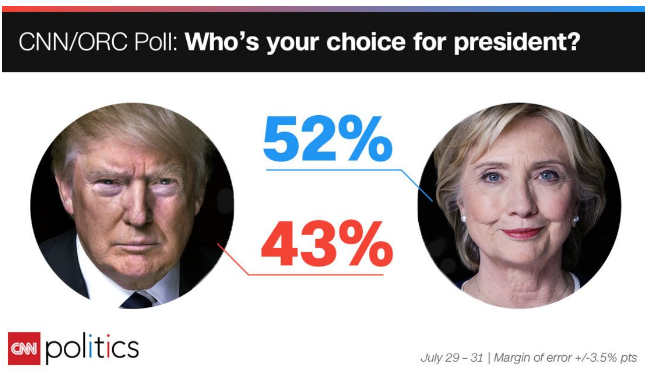-
Posts
3,161 -
Joined
-
Last visited
Content Type
Events
Forums
Downloads
Quizzes
Gallery
Blogs
Everything posted by TroubleandGrumpy
-
I see you are back on that issue you have with 'tax residency' in Australia and the impact any change might have on people living overseas and who no longer a tax resident. Sorry but you are still wrong. I am not writing this as an argument with yourself - that is over and I will not respond further - this is written for others to read and form their own opinion. Once you live outside Australia for more than 2 years it is very hard to maintain tax residency - after 3-4 years it is extremely hard - 5 years and it is a done deal. There are about 50-60K Aust pensioners living overseas who are not tax residents and have not been for many years - their pensions are not taxed. The ATO does not tax age pension payments - ever - if you can prove that they do, then put up or shut up. The age pension is 'taxable income' but it is not taxed - if you can prove anyone has had their pension taxed - then prove it. Discrimination and Human Rights is nothing about the general public or elections - it is about the rights of individuals. If they impose taxes on my pension while not doing the same to those in Australia, then I and 10s of thousands of others, will lodge discrimination claims against the ATO. I cant speak for racism directly, but I do understand that 10s of thousands of pensioners living overseas are citizens of other countries and were not born in Australia - they will have grounds for a racist based human rights claim too. Also, Australia is a signatory to the UN human rights charter that covers International Social Security payments, and I think they will be in breach of that too - I will certainly give it a try anyway.
-
The ATO does not tax any Centrelink Payments as a blanket rule - but it does include most of them as 'taxable' income' in a tax return. This so that anyone who receives a Govt Payment who then also earns additional income that year, then their taxable income calculation for the threshold, starts at the total for the counted Centrelink Payments. The Age Pension is one that is counted, but with the SAPTO people are allowed to earn additional income tax free to help them out - hence you see a few older aged people doing part-time work in roles such as traffic control outside schools. There is a lot of misinformation out there, because the age pension is 'taxable income' and is not 'tax free income'. The Age Pension is not taxed. The SAPTO is not about not being taxed on the Age Pension payments that are above the tax-free threshold. If you have no additional income, other than the Age Pension, there is no SAPTO calculation required. However, as with most bureaucrat written articles these days, that fact is as plain as mud on the website. When you read the ATO information on their website, you have to look at every statement from the point of view of someone lodging a tax return. They say Age Pension is 'taxable income', and they also do not include it in the list of tax-exempt or tax-free payments, because people will not include it in their tax returns if they do. Rather than explain it correctly, they focus on the dumbest lowest educated and intelligent taxpayer, so that they will include it in their tax return. When it comes to the Age Pension continuing to not be taxed for those living overseas (about 100K of us), nothing precludes overseas recipients of the Age Pension being afforded the same benefits as those living in Australia. Taxing Age Pension payments for those living overseas is not IMO possible for those that have previously met the qualification requirements for both receiving the pension and for 'portability' of those qualifications. Plus IMO if the Aust Govt ever does try to change that situation, they will immediately have a raft of human rights complaints (and many racial discrimination complaints too). That will not stop them in the future making changes for those yet to qualify for the pension and portability, but IMO even that would be a hard sell to not be a for of 'aged discrimination'. Also, because many Age Pensioners living overseas are also citizens of the other country, any such change could easily be seen as being racist.
-

What are the best ways to meet other expats?
TroubleandGrumpy replied to Conan The Barbarian's topic in General Topics
Good point about the tats. What I meant is those with tats all over themselves - especially full arms and full legs. I have a few younger relatives with tats (fashionable these days) - but they are discrete and not 'loud and angry' so to speak. -
Got some good advice - as far as I know (no confirmation only consultant advice), you have misinterpreted that TRD taxation advice. Firstly - this is the link to the latest 2023 TRD guides and taxation forms - Year 2023 | The Revenue Department (English Site) (rd.go.th) As you will note there are two guides/forms - one for 'only employment' (ภ.ง.ด.91) and one for 'not only employment' (ภ.ง.ด.90) There is no guide/form for someone who has no employment income. The advice I have is that your 'method' is only applicable when only one of the taxpayers has earned income from employment, and that is so that a person cannot claim two 0-150K deductions and thereby get a tax refund on tax money already paid to TRD by their employer. My understanding is that when all the taxable money is only from investments and overseas earnings etc etc then the income and deductions for both spouses is used. However, having said that, I must also say that the TRD has not to my knowledge confirmed that arrangement in the Laws or Rules or any Court decisions - I believe that it is just 'common practice'. Same 'common practice' that there is no need to lodge a tax return if you do not have to pay any income taxes. TRD is setup for PIT is only to deal with the taxation requirements of Thais employed by businesses that pay tax withdrawal money to TRD, and those who also earn money from investments. The wealthy Thais all use companies to earn their money and tax accountants to lodge their returns. Yes mate - the best advice I got, and always give, is to keep your head down and stay away from TRD for as long as possible. And if ever questioned in the future and then told to pay up (very unlikely), plead ignorance and beg for forgiveness. Wait and see how things develop over the next year or two - then and only then will we know what TRD's 'common practice' will be regarding Expats who are retired/married.
-

What are the best ways to meet other expats?
TroubleandGrumpy replied to Conan The Barbarian's topic in General Topics
Gotta agree - most of the ones I have met are 'damaged' and they become trouble very quickly - especially women - I now avoid them. However, the tip about joining a bike riding club and/or a golf club and meeting Expats that way is good. Those guys who do things tend to be far better people than those with tats all over, stay inside most of the day, frequent bars and other places. All good if that is what they want to do, but not the type I want to meet (again). The is a guy called Pat in Bangkok and he has a utoobe channel - one of his best vids is about the types of Expats in Thailand and who to avoid. Number 1 on his hit parade is the 'Thai Apologist' who thinks he is almost a Thai and defends everything Thais do in 'their country' - and says things like 'leave if you dont like it' - all due to psychological issues with having internalised the belief that he is almost Thai as a 'coping mechanism'. -
Yes mate - my spreadsheet is a little complicated. But the basics are that you add all your and your wife's incomes together (100K + 0 = 100K) Then you add all your combined TEDAs together (including the first 150K each). I only included the basic TEDA items - there are more available but I did not bother because our total TEDA is above our total income. I did not count withdrawals from my Super as that is retirement savings built up over many decades - it is not income. Note that I only counted the Age Pension payments for the exercise - I believe the Age Pension is not taxable income in Thailand. But it is good to know that even if it was, I dont have to pay any income taxes. And I have received advice from a tax accountant/law firm that under the current TRD lodgement rules, because I dont have to pay any income taxes, then I dont have to lodge a tax return (30+ million Thais also do not lodge tax returns). I was 'talking' to a bloke the other day and he reckoned that if TRD tries to enforce the lodgement of income taxes by all non-working Expats they will be in breach of many legal and human rights rules (that would not stop them of course). But there would be an outcry if they dont also force all Thais to also lodge a tax return too - but that would mean their immediate crash in the polls and a total destruction at the next election. Like myself, he reckons the best thing to do is not go out on the water with a small boat - avoid having anything to do with the TRD 'shark' for a few years at least. If you dont have to lodge a tax return by your own calculations, including DTA interpretations, then IMO dont. The TRD system is a self assessment system - they dont proactively calculate people's taxes like those in the West do. They may ask one day 'why you no lodge return' so always keep your records and calculations.
-
Same reason used 60K allowance twice - both myself and wife have the 60K allowance, and we both have the 0-150K exemption. That is why only 1 x 190K allowance because wife not yet over 65, and also only 1 x 100K Pension allowance as wife does not get a Pension. Essentially it is 2 tax returns combined together - the total income we both earn combined, and the allowances we both have also combined.
-
Everything is an opinion - unless TRD decides otherwise. I am stating that it is what the TRD decides that matters - it does not matter what the UK has 'determined or stated'. I think you are thinking that the TRD is an efficient professional and organised Government Agency - it is not by any means. May I suggest, if you want to sort this out yourself, then start from this simple premise - TRD decides. So therefore, if you were to show a TRD Officer the UK Government website about the State Pension, I think Somchai will agree that it is not taxable. At the very least it will be a good basis to claim 'I did not know'. There is no simple definite factual reality regarding how/when/if TRD will apply income taxes - make your own decisions and put all that together for later use - or get some advice from a tax accountant - up to you.
-
Depends upon the DTA you mean (they change a lot). Check again my statements and other people's views - there is more to the DTAs (and yes they do vary a lot) than just that one Clause. That Clause is referring to Public Servants who usually have their own Retirement Pension arrangements (especially the Politicians and Senior Execs) and they (authors) did not want their own Pensions to be taxable if they decided to live/retire in the other country. There are other referrals to Government Payments and publicly funded Pensions - and it varies a lot from DTA to DTA. Let me know if you are an Aussie - I have a separate post about the Thai-Aust DTA and its affect on the Aged Pension. However - please understand that there is no definite TRD or Court ruling or interpretation on this issue, as far as I know. Just broad statements by 'tax experts' drumming up business - but not the TRD or Courts - although some Expats have gone into their local TRD Office and have been told that the Pensions are not taxed. My 'statement' that IMO the UK State Pension looks like a Government Pension to me (and the link to a UK Government website) is only my opinion - but I reckon that Somchai in the local TRD Office would probably agree with that statement when told that and shown that UK Gov website. And that is all that counts - what TRD views - not us armchair experts on AN. If I was told by the local TRD Office that Pensions are not taxable, then what sort of idiot would I be if I argued with them and tried to 'correct them?? Likewise, I have formal written advice from a tax expert, confirmed by a TRD employee friend of my wife's Sister, that if someone does not have to pay income taxes after TEDA, then they dont have to lodge a tax return - which is what 30+ million Thais do (not lodge a tax return). TiT.
-
Thanks - glad to see some people have a solid understanding of how the taxation system works and how specific matters are not as they think they are because of what they were told many years ago. I also think they (and Aust and NZ) will not bother to collect the amounts in question, although they may implement a deduction at the source arrangement (based on the last tax year), such that the small amounts are deducted, and it is then up to the tax payer to claim them back as appropriate.
-
Link to TRD website/statement or Court interpretation confirming that claim you have made. Or - as I suspect - are you being so blinkered about things, that you think that the definition that matters is what the UK Government thinks?? There is only one authority in Thailand about what anything means regarding taxation rules and regulations and practices - and that is the Thailand Revenue Department - and any legal rulings made by the Thailand Courts.
-
Obviously ChatGPT is useful in some situations - but I would not take tax advice from it because it is just parroting the words used by many tax consultants on their websites - designed to drum up business. And lets face it, people like me who think Government Pensions are not taxable income, do not have a website. Maybe ask ChatGPT what does the TRD say about Government Pensions being taxable income.
-
Thais do not pay taxes on the Pension payments. Is this Pension you mention payment any different under Thai tax law - no one knows for sure - TRD have not clarified this particular issue - and hundreds of others. IMO it could be taxable income - because she is not a Citizen of that other country - unlike Expats receiving Pension payments from their own country which IMO are not taxable income in Thailand - until TRD declares they are.
-
I disagree - just because some people say it is so, it does not mean they are correct. Many others, me included, have stated for a long time that IOO that is not the case - but we are drowned. Should TRD ever state publicly that in their opinion the XYZ Pension of Country ABC is taxable income, then and only then is that the definitely the case (which the other Country's tax office/dept might wish to discuss with TRD. And to my knowledge TRD has not done that, and the matter has not been tested through the Taxation Tribunal/Court either. If you have something that shows that then please provide, but until then it is subjective opinions - mine and theirs. The UK Govt has provided general advice and information across a lot of DTAS countries, but until the TRD either confirm or deny that position, it is a matter of subjective opinion. I would point out that words have different meanings in different countries, and who knows how TRD interprets the difference between 'Government Pension' and 'State Pension'. IMO any Pension paid by a Government is a Government Pension - until TRD states that they do not apply that interpretation, then, again, it is subjective opinion. One last point - many tax consultants in Thailand will say 'yes that is taxable income'. 3 reasons they do that (a lot). 1. They get business. 2. There is no regulatory penalties for incorrect/erroneous tax advice in Thailand (unlike UK, Aust, USA etc). 3. In Thailand they do not provide detailed public information and advice and training for both tax 'consultants/accountants' and the public (unlike UK, Aust, USA etc).
-
Yes - that IMO is exactly what that Clause means. A UK Citizen who becomes a tax resident in Thailand, cannot (under the DTA) have imposed upon them, any requirements that are not imposed upon the Citizens of Thailand, and must also be offered the same benefits that are made available to the Citizens of Thailand. However - does that mean that Somchai in the local Provincial Office will understand and/or accept that - not necessarily (probably not). And that issue is but one of the hundreds of reasons why Thailand is not in a position to offer fair and reasonable imposition of income taxes on Expat tax residents that are bringing money into Thailand from overseas - both now, but more so if they move to a worldwide taxation system. That is why The Philippines, Malaysia and Indonesia have excluded the income of Expats living in their country if it has been subjected to the taxation system of their home country. UK (and most other countries) do count Pensions as taxable income (for thresholds etc.), but they impose zero or minimal tax rates to those Pension payments. Therefore they have been subjected to the local tax system and are tax free - as opposed to money made from selling drugs and other illegal activities.
















